March 2013 PBAC Outcome - Subsequent Decisions Not to Recommend
PDF Printable Version of March 2013 PBAC Outcomes - Subsequent Decisions Not to Recommend (30 Kb)
|
DRUG AND FORM |
TGA INDICATION |
CURRENT PBS LISTING |
LISTING REQUESTED BY SPONSOR |
PBAC OUTCOME AND COMMENTS |
|---|---|---|---|---|
|
ALGLUCOSIDASE alfa-rch, powder for I.V. infusion, 50 mg, Myozyme® Genzyme – A Sanofi Company Minor submission |
Long-term treatment of patients with a confirmed diagnosis of Pompe disease (acid alfa-glucosidase deficiency). |
Not currently PBS listed. Alglucosidase is funded under the Life Saving Drugs Program (LSDP) for the treatment of infantile onset Pompe disease. |
At the price proposed in the submission, algucosidase alfa cannot be recommended for listing on the PBS in the S100 Highly Specialised Drugs Program due to the unacceptably high cost effectiveness ratio. Alglucosidase alfa does not meet criterion 4 of the LSDP, in that although alglucosidase alfa may have some effect on mortality and quality of life, the available data do not provide certainty to the PBAC that the drug substantially and directly extends the lifespan of patients with late-onset Pompe disease Even if the LSDP eligibility criteria were to be met, the PBAC considered the large difference in the drug cost for treating infantile-onset Pompe disease compared with late-onset Pompe disease is not justified in terms of differential health outcomes. On the contrary, at the price requested by the submission, alglucosidase alfa appears to be less effective and more expensive (per patient) for late-onset Pompe disease than for infantile-onset Pompe disease. Although not requested in the submission, the PBAC considered whether a listing of alglucosidase alfa on the PBS for the treatment of late-onset Pompe disease was possible under the PBS rule of rescue criteria, on the grounds that although not suitable for inclusion in the LSDP, alglucosidase alfa may provide a worthwhile clinical improvement sufficient to qualify as a rescue from the medical condition. However, a significantly lower price than that proposed by the sponsor in the current submission would be needed because the PBAC Guidelines (2008, v 4.3) state that, unlike the LSDP criteria, the rule of rescue “supplements, rather than substitutes for the evidence-based consideration of comparative cost-effectiveness. The PBAC decided not to finalise its recommendation on this matter until the sponsor had an opportunity to consider a possible application for listing of alglucosidase alfa on the PBS under rule of rescue critera but at a significantly lower drug cost per patient per year for treating late-onset Pompe disease than proposed in the current submission. The PBAC acknowledged the consumer comments on this item. |
|
|
Listing Requested: The resubmission sought listing on the Life Saving Drugs Program (LSDP) for treatment of children, teenagers and adults with late-onset Pompe disease. The sponsor did not propose wording for a PBS listing. |
||||
|
Comparator: Standard (palliative) therapy including intensive respiratory support, cardiac care, dietary therapy and rehabilitative services. |
The PBAC has previously accepted this as an appropriate comparator. |
|||
|
Clinical claim: The sponsor considers the totality of evidence presented to date, given the inherent challenges of ultra-rare conditions, demonstrates that alglucosidase alfa treatment directly and substantially extends life. |
The PBAC considered that the observational data set for late-onset Pompe disease did not provide a sufficient basis to support the submission’s claims of substantial life extension. |
|||
|
Economic claim: The submission did not present an economic evaluation. |
||||
|
Sponsor’s comments: |
Genzyme is very disappointed with the decision. The LSDP is the appropriate place for the funding of this therapy given the small number of patients and the published evidence base to support life extension. It is the revised LSDP criterion 4 and/or the interpretation thereof that has been shown not to offer a way forward. Genzyme is therefore currently not able to make further submissions under this system. |
|||
|
MIGLUSTAT, capsule, 100 mg, Zavesca®
Actelion Pharmaceuticals Australia Pty Ltd Minor submission |
Treatment of progressive neurological manifestations in adult and paediatric patients with Nieman Pick type C (NP-C) disease. |
Not currently PBS listed Listed on the Life Saving Drugs Program (LSDP) for treatment of type 1 Gaucher disease. |
The PBAC rejected the submission for PBS listing due to uncertain clinical effectiveness and unacceptable cost-effectiveness. The PBAC rejected miglustat for inclusion on the LSDP because it failed to meet criterion 4, and criterion 5 of the LSDP; that is there is evidence acceptable to the PBAC to predict that a patient’s life will be substantially extended as a direct consequence of the use of the drug and that the drug has been accepted by the PBAC as clinically effective. |
|
|
Listing Requested: The resubmission sought inclusion on the Life Saving Drugs Program (LSDP) for treatment of progressive neurological manifestations in adults and paediatric patients with Niemann-Pick disease Type C disease. |
||||
|
Comparator: Standard medical management comprising palliative care. |
The PBAC has previously considered that placebo plus standard medical management (standard care) was the appropriate comparator for miglustat in the treatment of NP-C disease. The PBAC did not accept the resubmission’s reasons to justify the lack of use of a placebo control as a comparator in the clinical studies. |
|||
|
Clinical claim: No new clinical claim was made in the resubmission. The November 2011 submission described miglustat as superior to placebo in terms of effectiveness in patients with NP-C. |
The PBAC considered that the evidence provided to date was insufficient to support the clinical claim that miglustat is superior to placebo in terms of effectiveness. |
|||
|
Economic claim: The resubmission did not present an economic evaluation. |
The PBAC has previously accepted that miglustat is not cost-effective. |
|||
|
Sponsor’s comments: |
Actelion is disappointed with the rejection but will continue to explore every avenue to make Zavesca more easily accessible to patients with Nieman Pick type -C disease. |




